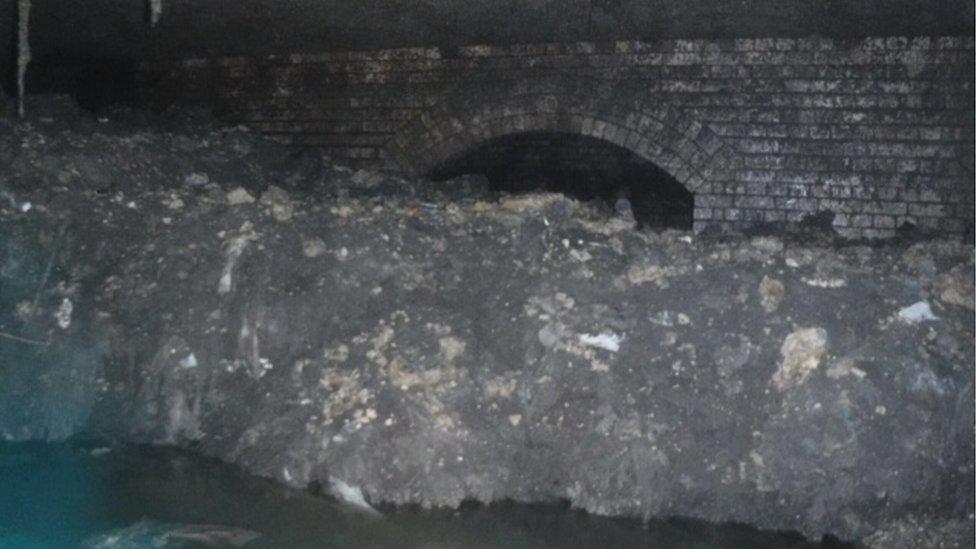Cancer screening led me to invent dissolving wet wipes
- Published
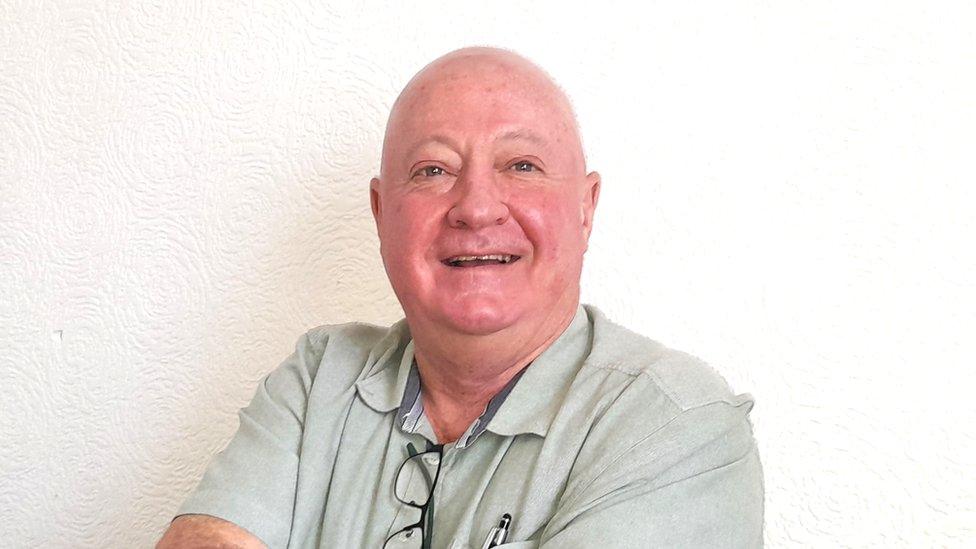
Brian McCormack has already secured commercial deals for his dissolvable products
Dissolvable wipes could soon be hitting markets around the world after a regular cancer check inspired a former miner to become an inventor.
When Brian McCormack started using a home testing kit to screen for bowel cancer, he found the process awkward and inconvenient.
He felt there had to be a better way to make sampling easier, especially when it came to disposing of the collector.
So Brian headed to his kitchen - or his "lab", as he now calls it - and began experimenting with materials and household chemicals.
The decision six years ago was to turn him into an inventor of soluble products, including wet wipes.
'I blew up my microwave'
The 65-year-old from Kirkcaldy, who had spent more than two decades in coal mines and tunnels, found his first foray into the world of invention did not exactly go according to plan.
"During my experiments, I managed to blow up my microwave, but I didn't give up," he explains at his home.
Acknowledging his lack of chemistry skills, he was to seek and find an Ohio-based soluble paper specialist which developed, under his design patent, a stool collector that was flushable.
His product was picked up by Swedish authorities, but turned down by the NHS in the UK on the grounds of cost.
The setback might have put others off but it was to kick-start a series of inventions from Brian, who now has a suite of patents under his belt.
His goal was deceptively simple - to design products that would dissolve almost instantly in water.
A demo from Brian's firm (with conventional wipe on the left) shows how the wipe dissolves
And he has now signed significant deals with cosmetics and healthcare companies in the UK and beyond.
"After a lot of hard work, I discovered I could venture into making a dissolving wipe - one that was wet that could do the job that needed done and dissolve," he says.
"I could see an opportunity to make a wipe that was environmentally friendly. That was not easy. It must have taken me a year-and-a-half to get that perfect.
"Having worked in the fossil fuel industry, I went from one end to the other."
The wet wipes his company McCormack Innovation has since patented have been accredited with Water UK's "Fine to Flush" standard.
Just recently, he signed a licensing agreement with an Australian cosmetics company for a range of products, including soluble make-up removal wipes.
And has also has a contract with a UK-based firm to use his company's soluble wipe technology for the international stoma care market.
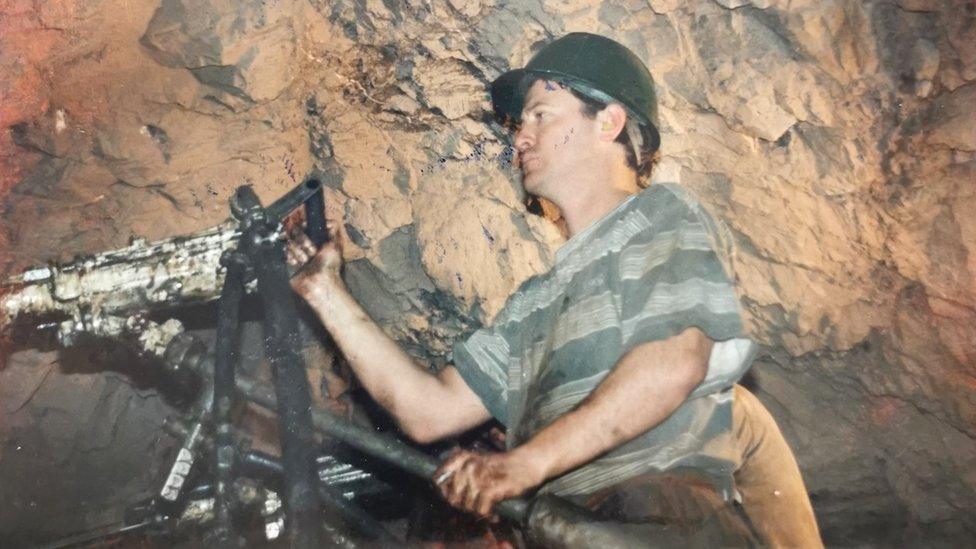
Brian used to work as a coal miner and tunnel blaster
Brian's inventions have piqued the interest of environmental groups and academics.
WWF Scotland director Lang Banks says there's "a huge global business opportunity awaiting anyone who can develop a genuinely sustainable alternative to plastic-containing wipes".
"Single-use wet wipes are a scourge on our environment, polluting our oceans and causing harm to marine life," he says.
"That's why we need to see a rapid phase-out of unnecessary single-use plastics and single-use items that contain plastics.
"In addition to a ban on wet wipes that contain plastic, we also need to see the development of environmentally-friendly alternatives."
'Interesting concept'
Marine ecologist Lea-Anne Henry, from the University of Edinburgh, describes the invention of soluble wipes as "an interesting concept", but has some reservations.
"It's not clear what happens to the product once it dissolves. A flushed wet wipe may dissolve and disappear to our eyes, but if the product breaks down into micro or nano-particles, as it sounds like it would, these particles will make their way through to our rivers and seas."
McCormack Innovation said its wipes were "completely safe to the environment and marine life", adding that "this is why after intensive testing of the product to the highest standards we were awarded Fine to Flush certification from Water UK".
Scottish Water, which deals with 36,000 sewer blockages each year - 90% of which feature wet wipes - says "any innovation in this area is of course welcomed, especially if it reduces the impact people's behaviours have on the planet".
However, it is still calling for a ban on the sale of wet wipes which contain plastic, and urging the public not to flush wipes of any kind down the toilet.
Meanwhile, Brian's inventive abilities show no sign of waning.
He is currently developing a range of dissolving wound care products in collaboration with the University of Dundee, after receiving a grant from the Scottish Funding Council.
And he says the European Space Agency is currently testing his wipes for potential use in deep space.

Brian hopes his wipes will be used in space
"Thousands of wipes are used in space on the International Space Station, mostly in personal care," he explains.
"That waste is currently taken away from the station around every seven or eight weeks.
"But in deep space travel there is not the luxury of collecting or even jettisoning such refuse."
Brian, who left school at the age of 15 with no qualifications, finds it hard to explain where his inventive side came from.
"I came from family of nine and became a fifth-generation coal miner. I remember my washing machine breaking down and I couldn't afford to get somebody to fix it - the shock absorber was away. But I fixed it with a bedspring - that's inventive, isn't it?"
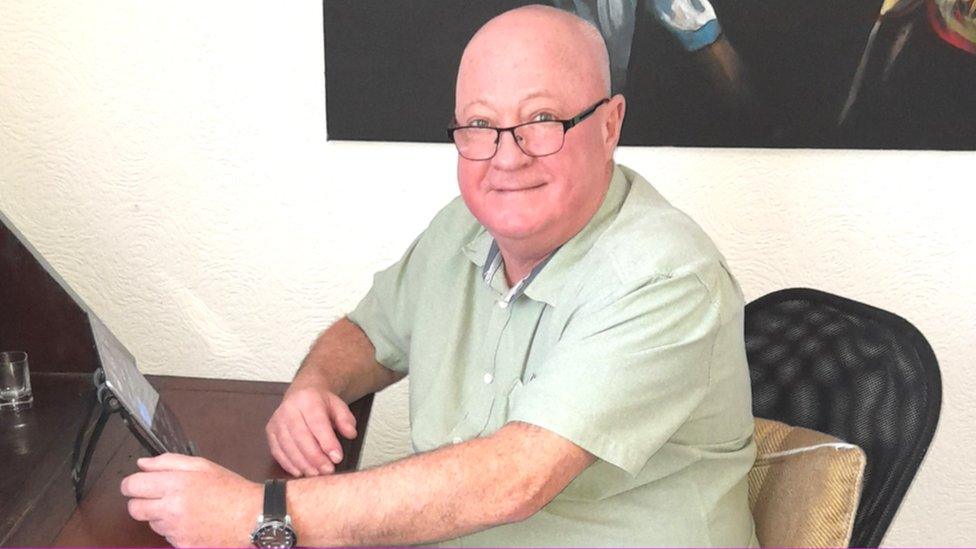
Brian says his journey as an inventor has been hard
Although Brian is beginning to reap the benefits of his inventions, he says his journey so far has been far from easy, due to the Covid pandemic.
"When I started, there was a lot of focus on the environment, and that gave me momentum.
"But then we had the pandemic. We couldn't get trialling, testing or meetings - people's focus was off the environment.
"But I kept paddling in the background. It was a hard time."
Scottish Development International (SDI) has been helping Brian's company access markets overseas.
Commenting on his deal with Conserving Beauty, SDI trade specialist Ashraf Mabrouk said: "This is the latest exciting step for McCormack Innovation as the company aims to achieve its global ambitions.
"The agility and determination Brian has showed to develop his idea, turn this into a feasible product and then take his business to market has been inspirational."
- Published23 May 2022
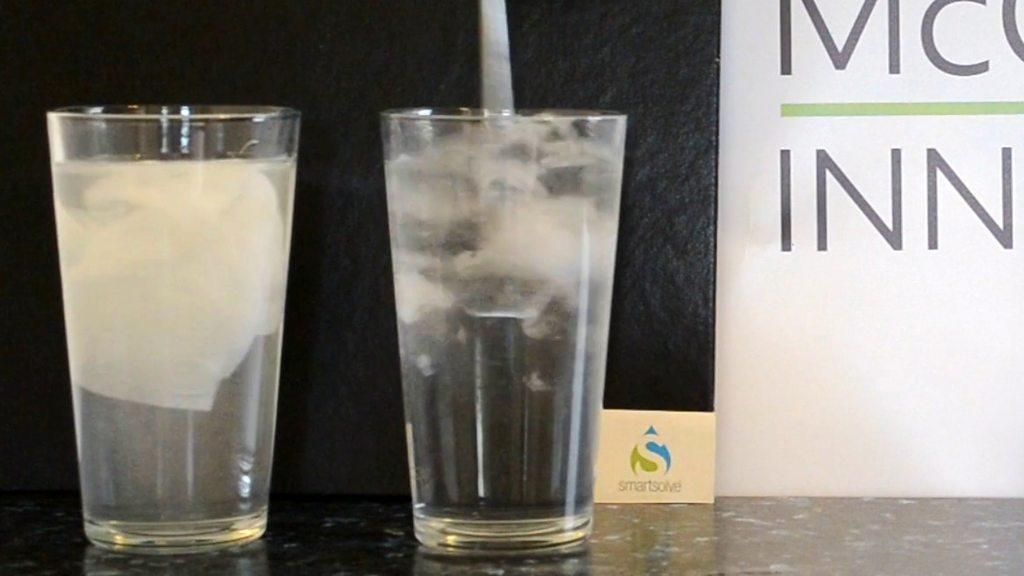
- Published23 February 2022
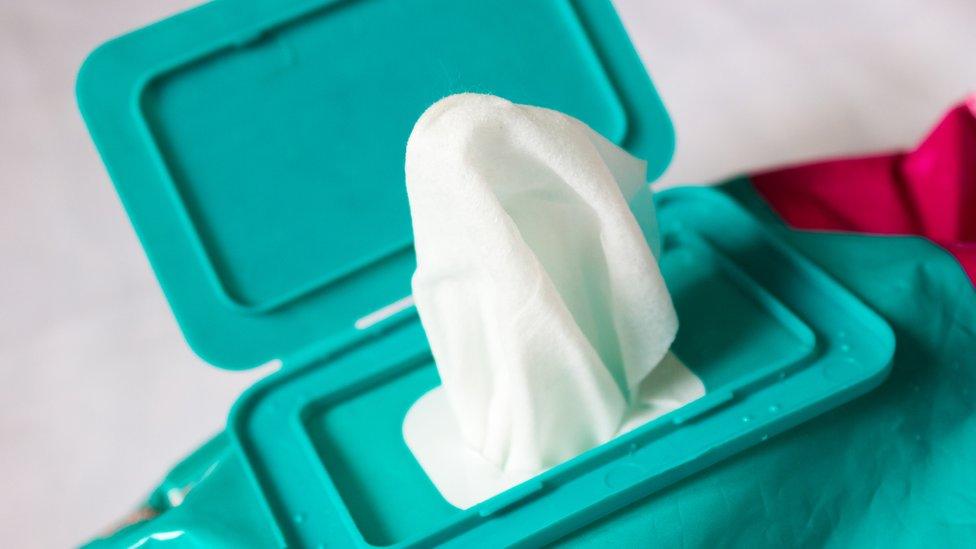
- Published11 January 2019
